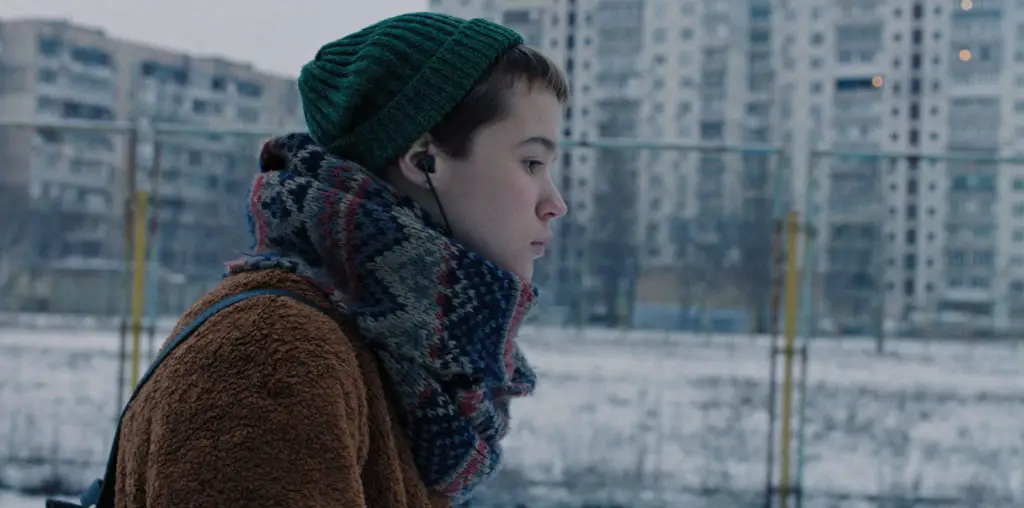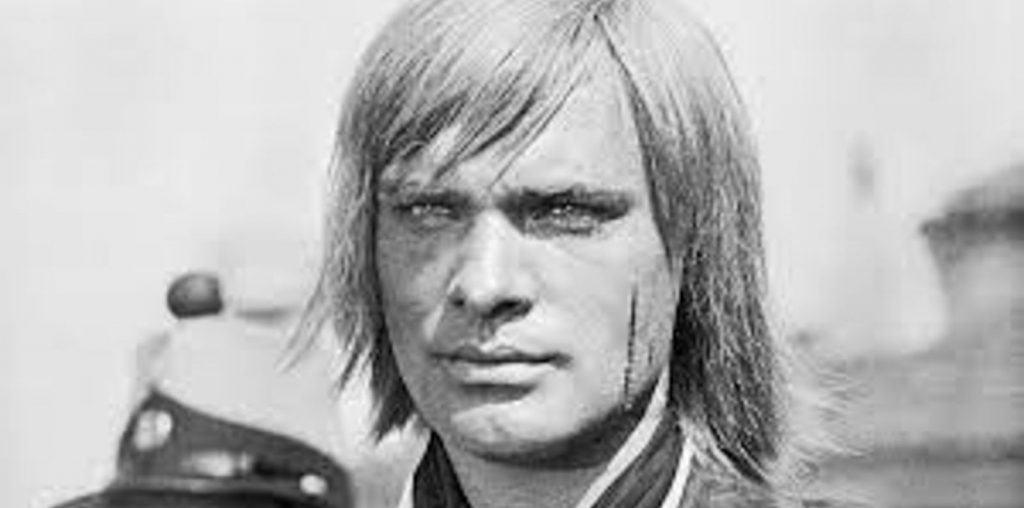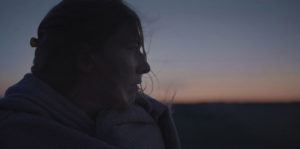
SFFILM FESTIVAL 2022 REVIEW! In light of the current turbulent conflict on the Russia-Ukrainian border, Maryna Er Gorbach’s Klondike couldn’t be more relevant. Based on real events, the dismal narrative unfolds at a glacial pace yet still hooks with the veracity of its filmmaking, setting, and the lived-in performances of its two leads. The drama will leave you feeling miserable, but not all art is meant to soothe. Sometimes, it’s important to glare into the darkness of the abyss.
The events unfold in the summer of 2014 in a village on the aforementioned border. Ira (Oksana Cherkashyna) and Tolik (Sergey Shadrin) are expecting a baby. Unfortunately, before the overly-worried husband has the chance to take his wife to the hospital, half of their house is destroyed by an explosion, leaving a glaring hole in the wall. Crucially, Tolik is “friends” with Sanya (Oleg Shevchuk), a Russian who may be responsible for the accidental destruction.
And then an airplane crashes nearby, leading to a heightening of tension. As Sanya and his gang close in, the couple has to kill what little livestock they have, and Ira’s brother Yaryk (Oleg Shcherbina) accuses Tolik of treachery. Yet Ira resolutely refuses to leave until certain brutal circumstances change her mind. The denouement is equally merciless and effective, bound to haunt for days.
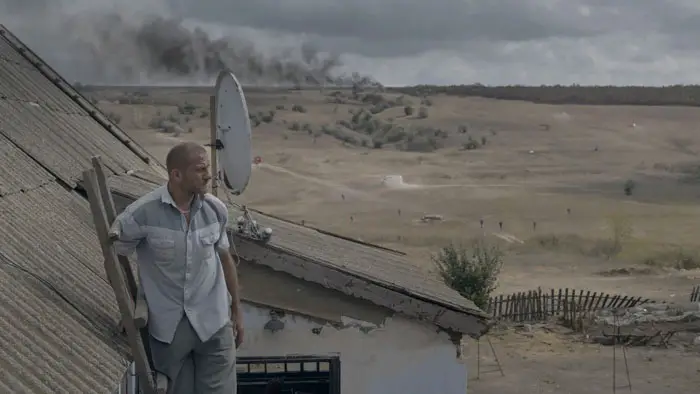
Courtesy of Sundance Institute.
“…half of their house is destroyed by an explosion, leaving a glaring hole in the wall.”
That finale, like the rest of Klondike, smacks you with the subtlety of a sledgehammer. A very pregnant Ira serving lunch to invaders under gunpoint – while being questioned about the plane crash – is just an example of a scene proclaiming the main message: that war is hell, it turns us into beasts, it blurs the line between friend and enemy, there are places where your family member can pull a gun on you at any second. That being said, Gorbach knows what she’s doing, displaying horrific things with a nonchalance that renders them infinitely more effective. After all, a sledgehammer blow leaves a mark.
Scenes unfold gradually, cinematographer Svyatoslav Bulakovskiy’s camera passively observing the events, frequently rotating in place to reveal things as they come into view. Ira milks her cow Maya, only for Tolik to savagely slaughter it later. When Tolik stands on a ladder, charcoal smoke is seen in the distance, scattered figures dashing towards it. Lined-up corpses scar a golden-brown sunflower meadow. A couple sits on a seared wing of a plane. Ira and Tolik watch football, the wall smashed behind them, revealing a twilit field. It’s all surreal and absurd, almost comical, but not quite. “We don’t have walls, and you want to do it?” Ira asks her husband, bewildered at his attempt to copulate.
Aside from examining the repercussions of war, Gorbach flirts but never quite explores the more compelling and original thematic element of one’s loyalty to home and country. Klondike plunges you into the midst of a nightmarish life, on the brink of utter and complete collapse, leaving you wrung and dry. Not a light weekend watch, then, nor a particularly original or subtle one – but artfully produced, deeply affecting cinema nevertheless.
Klondike screened at the 2022 Sundance Film Festival and the 2022 SFFilm Festival.
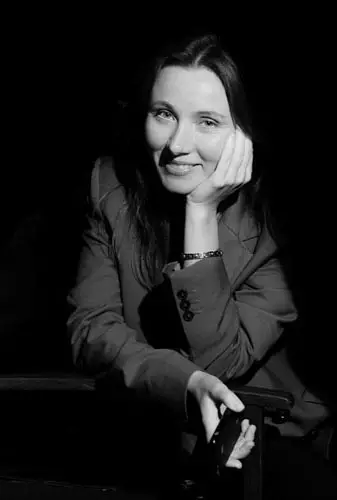
"…artfully produced, deeply affecting cinema..."
